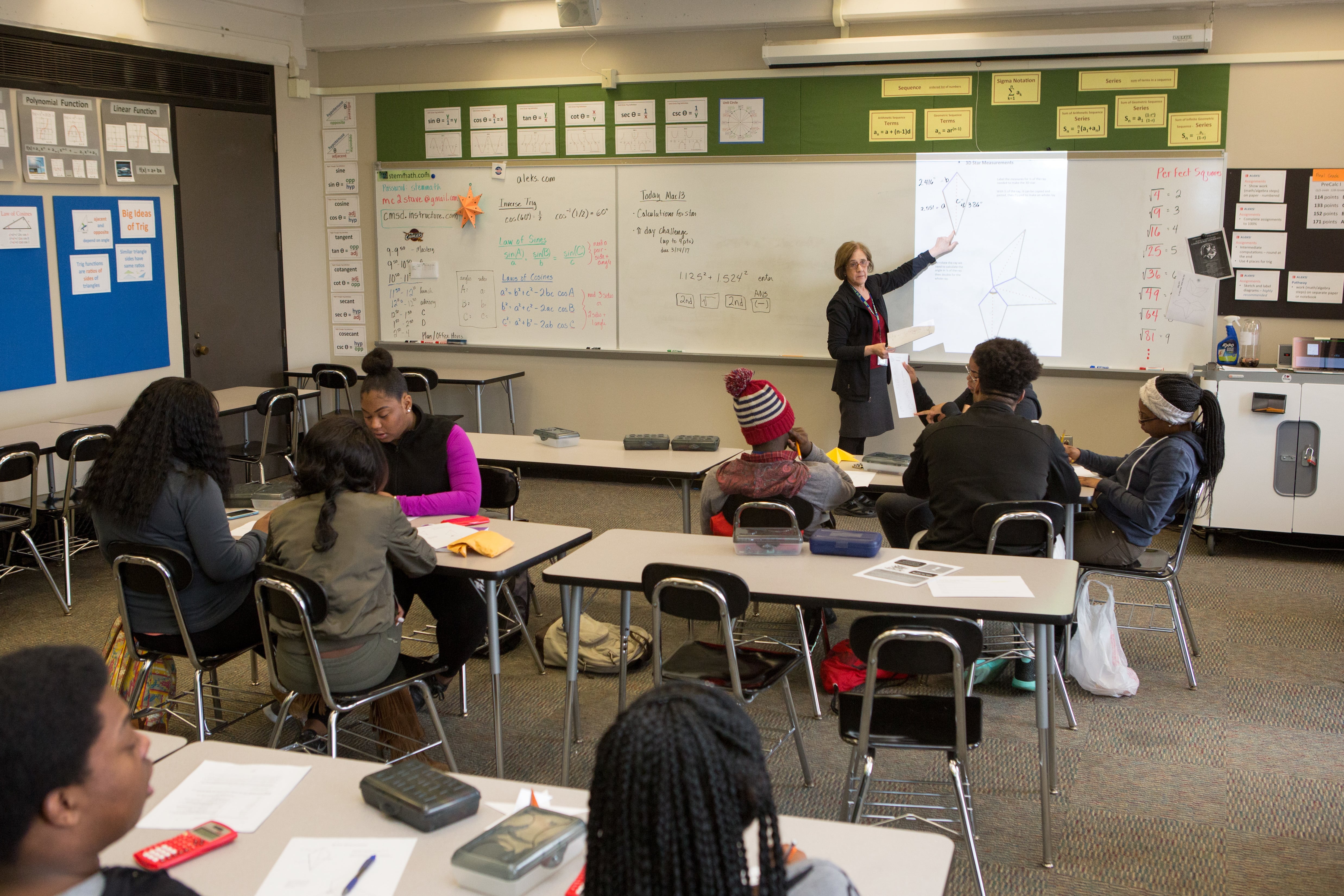School bus drivers and cafeteria workers soon could be in front of classrooms instead of behind steering wheels and serving counters.
Lawmakers passed a bill late Tuesday temporarily allowing school support staff to substitute teach even if they don’t have a single college credit.
The Republican-sponsored bill passed on near party lines. It’s unclear if Gov. Gretchen Whitmer, a Democrat, will sign it into law. Her spokesperson did not respond to requests for comment.
If she signs, school staff members who want to substitute teach this school year need only a high school diploma or equivalency certificate. That’s a temporary reprieve from the requirement that substitute teachers have an associate degree, 60 college credits, or, in the case of career and technical courses, subject-matter expertise. Substitutes who are not school staff members would still have to meet those requirements.
Districts have long struggled to find enough substitute teachers, but the problem worsened during the pandemic when many teachers retired and those who remain are sometimes forced to quarantine because of coronavirus exposure. The nationwide problem has forced temporary school closures and prompted pay hikes to attract substitutes. Before the pandemic, substitute teachers in Michigan were typically paid $80 to $85 a day but some districts are now offering much more.
Under the legislation, staff members who earn more than the daily substitute rate would be paid their normal hourly rate. Those who normally earn less than substitutes would receive the higher rate.
The state Department of Education opposes the bill.
So do Democrats on the Senate Education and Career Readiness Committee, who expressed concerns that the change would diminish the quality of education and would exacerbate staffing shortages in other areas.
“It’s a staffing shell game. It also has no guarantee that the substitute will be teaching our kids the content that they’re there to learn,” Democratic Sen. Erika Geiss of Taylor said during a floor speech Tuesday evening.
“Staff members who are not educators are wonderful people,” said Geiss, a former teacher. “They are valued, hardworking members of our school communities, but for the most part, especially when we have a situation where a long-term substitute might be needed, they aren’t the ones who should be substitute teaching.”
Whitehall District Schools Superintendent Jerry McDowell said bus drivers could teach in between their morning and afternoon routes. His district serves 2,000 students north of Muskegon.
The Senate voted 23-13. Republicans Ed McBroom of Vulcan and Wayne Schmidt of Traverse City voted no along with most Democrats. Democrats Winnie Brinks of Grand Rapids, Curtis Hertel Jr. of East Lansing, Jeff Irwin of Ann Arbor, and Sylvia Santana of Detroit crossed party lines to vote yes.
The House, which already approved a different version of the bill in July, had to vote again because of a technical change made last week in the Senate Committee on Education and Career Readiness. The House voted 55-48. Jewell Jones of Inkster was the only Democrat joining Republicans in voting yes.







